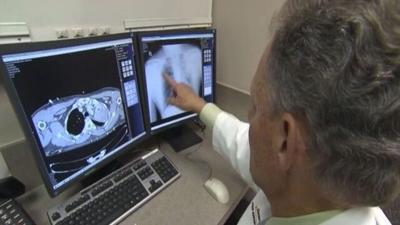
Parents could get critical information about their infant's genetic conditions sooner. The Zachary Thomas Newborn Screen Act was signed into law. The law was written by a grassroots organization. One of the organizers has three children with a rare disease. They wanted to make sure those diseases were added to Alabama's Screening Panel.
Babies born in the state are not screened for all conditions included in the "United States Department of Human Services Recommended Uniform Screening Panel". House bill 77 is now signed into law and it hopes to change that. Dr. Wes Stubberfield is the ADPH Medical Officer.
“The screening program started in the 1960s with one condition and it’s since expanded to many. Some conditions that are very common like sickle cell trait, cystic fibrosis,” said Stubberfield.
The newborn screening program is administered by the Alabama Department of Public Health.
It tests blood for a variety of rare diseases and it screens for deafness and also congenital disease.
“The ADPH lab has always attempted to stay up to date with these recommendations, which are published on the HHS website. Currently, we are behind by four conditions. Two are being added quickly within the next couple of months, and then to two to be determined in the next little bit. This does tie the department to a timeline,” said Stubberfield.
Stubblefield said ADPH must start screening for diseases added to the Recommended Uniform Screening Panel within 36 months of their addition.
He says if that timeline is not met, the Health Department must report to the legislature and give a reason why the timeline was not met.
“Now you know this give a peace of mind, knowing that many these conditions potentially take time to diagnose would be diagnosed and treatment if possible,” said Stubberfield.
The law will be enforced on Oct. 1.














